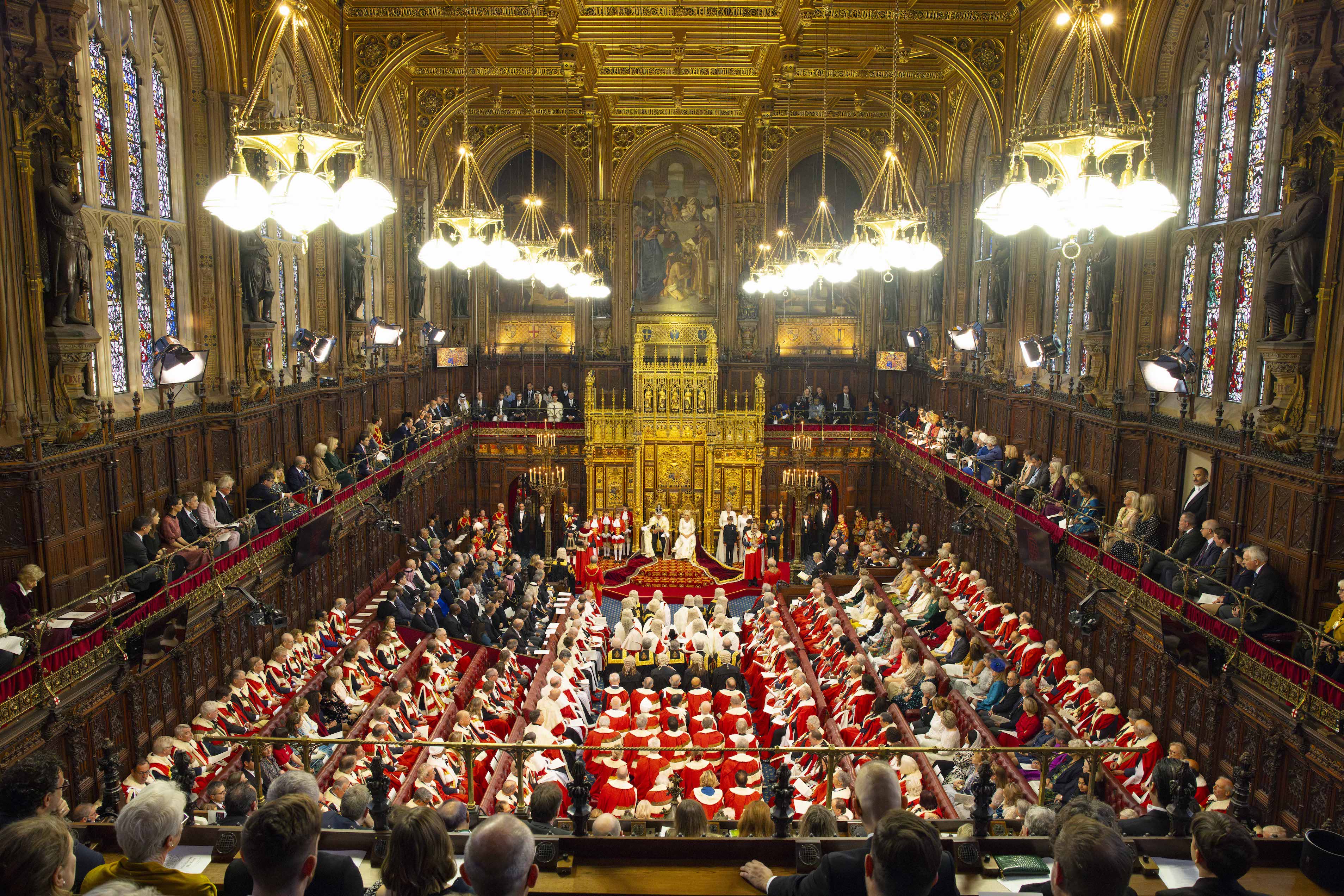The House of Lords has had an unusually high-profile year. The upper chamber likes to conduct its business in the background with the public eye drawn more towards the dramatics in the commons. Yet the surprise elevation of David Cameron, to enable Rishi Sunak to drop the former prime minister into his cabinet as Foreign Secretary, has again thrust the second chamber to fore of public debate.
It caps a year when the Lords — and especially the process of who gets appointed to its crimson benches — has become an object of national scrutiny. This year alone has seen police investigating Baroness Michelle Mone in connection with Covid contracts awarded by the government, followed by the controversies over Boris Johnson’s resignation honours list.
This first saw a 29-year-old and 30-year-old awarded life-long peerages that could see them legislating, unelected, for half a century. Johnson’s resignation list then ignited a secondary controversy when former culture secretary Nadine Dorries went public with her anger at allegedly being denied a peerage after being nominated by Johnson. This is all before Liz Truss is reportedly due to add yet more peers for the upper house’s heaving benches with her own resignation honours.
These controversies have cast a spotlight on how appointments to the Lords are handed out. The impression that emerges is that the right to sit in the Lords is often traded in a tawdry manner by our political class and given out to people more because of their relationship with a prime minister than merit.


However, Lord Cameron’s elevation caught the public’s attention in a whole different manner and highlights a disconnect between how our political class and the wider public view the Lords. For many in Westminster, the idea of people being dropped into the Lords to serve in government is not a particularly surprising one. Baroness Nicky Morgan served briefly as a peer in Boris Johnson’s cabinet as culture secretary after stepping down from the commons in 2019 and Gordon Brown parachuted Peter Mandelson into the Lords in 2008 so he could sit around his cabinet table as Business Secretary. Government departments routinely have a peer as a junior minister to ensure they have a representative in the Lords.
Yet seeing a former prime minster suddenly take up one of the most powerful political offices in the country without any democratic involvement has left much of the public perplexed, partly as it is an unprecedented move in modern politics. The last time one of the great offices of state was held by a peer was when Lord Carrington served as foreign secretary in Margaret Thatcher’s first cabinet from 1979 to 1982.
Another precedent for Lord Cameron is the short-lived Prime Minister Alec Douglas-Home. He renounced his hereditary peerage in 1963 to take the post as prime minister after Harold Macmillan resigned due to ill health, and only served for 363 days. Douglas-Home later became Foreign Secretary under Ted Heath between 1970-74, albeit while still serving as an MP.
The wider optics for the public are that the ennoblement of Lord Cameron is the latest in a line of controversies about the role the unelected Lords plays in our politics. What the public have seen over the last year is how the upper chamber gives prime ministers past and present extraordinary and untrammelled powers of patronage. Power that mean they can gift anyone they please a seat in the Lords, handing them a job-for-life shaping our laws, which pays £342 a day.
The sheer size of the Lords shows how this patronage is out of control. At around 800 members, the Lords is the second largest legislative assembly in the world after China’s National People’s Congress and creates the embarrassing situation for the UK of having a parliament that is majority unelected. That is before you get to the fact that it also contains 92 all-male hereditary peers, who have a life-long seat in parliament due to birth-right.
There are few who would argue that this is a system fit for a modern democratic country. The last year has underscored the growing case for urgent reform of the Lords. It is time that the current unelected Lords was abolished and replaced with a smaller elected chamber, something Labour have already proposed. This would place our second chamber on a clear and sustainable democratic footing underpinned by the foundational principle that it is the people of this country, not politicians, who should decide who sits in parliament.
Politics.co.uk is the UK’s leading digital-only political website, providing comprehensive coverage of UK politics. Subscribe to our daily newsletter here.

